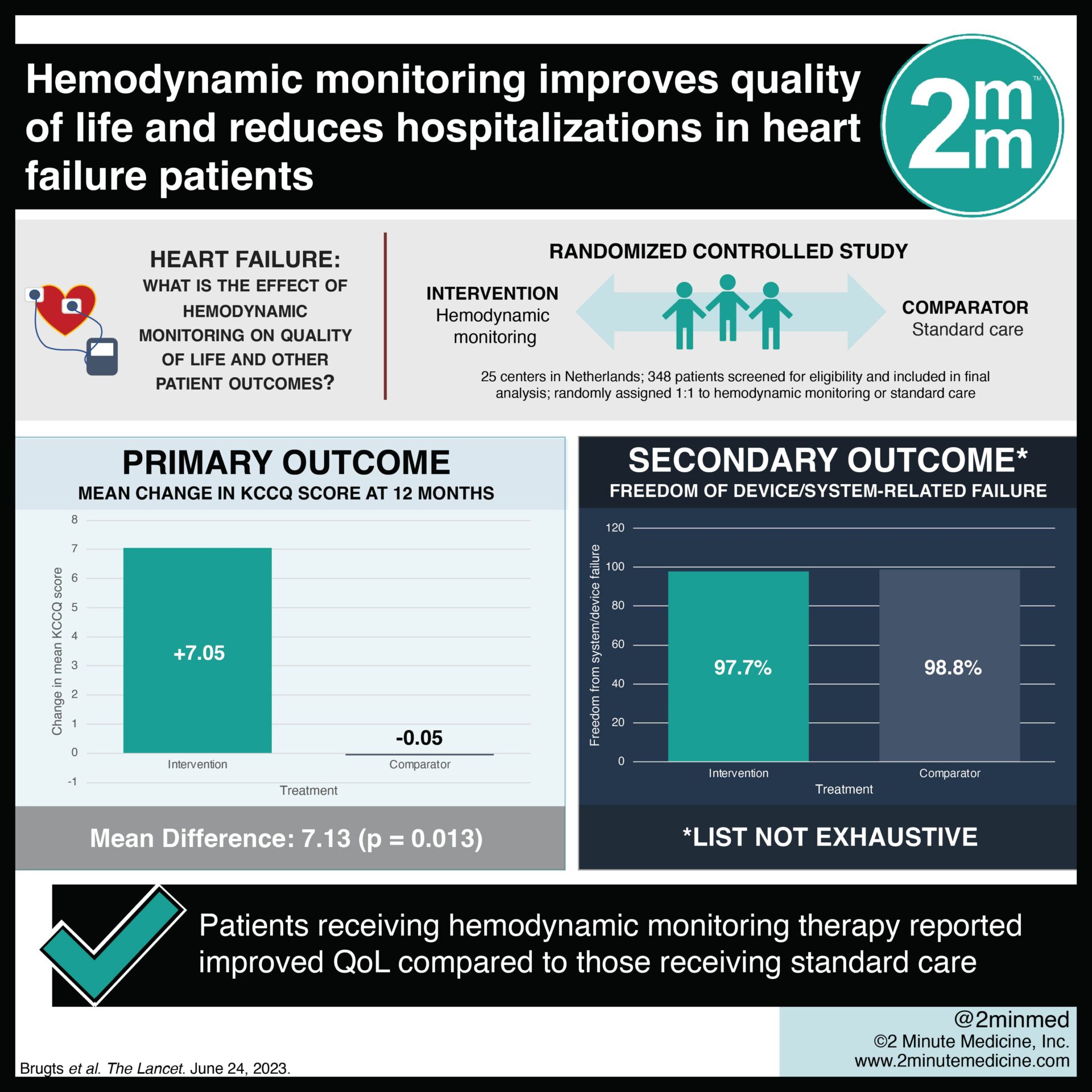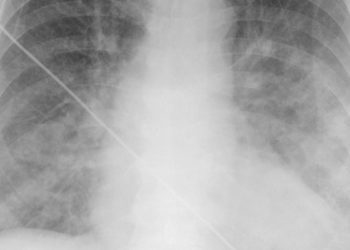#VisualAbstract: Hemodynamic monitoring improves quality of life and reduces hospitalizations in heart failure patients
1. Patients assigned to hemodynamic monitoring reported improved quality of life than those receiving contemporary guideline-directed medical therapy.
2. The rate of hospitalizations due to heart failure was reduced by 44% in the hemodynamic monitoring group compared to the control.
Evidence Rating Level: 1 (Excellent)
Study Rundown: In patients with heart failure, hemodynamic congestion may precede clinical manifestations of a fluid-overloaded state. However, there is limited evidence around the effect of hemodynamic monitoring of pulmonary artery pressure in patients with heart failure treated with contemporary guideline-directed medical therapy. This randomized controlled trial aimed to assess the impact of hemodynamic monitoring on quality of life and heart failure hospitalizations in patients with moderate-to-severe heart failure. The primary outcome of this study was the mean difference in Kansas City Cardiomyopathy Questionnaire (KCCQ) summary score at 12 months while a key secondary outcome was the odds ratio of an improvement or deterioration in KCCQ score. According to study results, hemodynamic monitoring improved quality of life and reduced heart failure hospitalizations in patients with moderate-to-severe heart failure. This study was strengthened by a randomized design by its large sample size, thus increasing its validity.
In-depth [randomized-controlled trial]: Between Apr 1, 2019, and Jan 14, 2022, 348 patients were screened for eligibility across 25 centers in the Netherlands. Included were chronic heart failure patients with NYHA class III and previous hospitalization for the same. Altogether, 348 patients (176 in the CardioMEMS-HF and 172 in the control group) were included in the final analysis. The median patient age was 69 years (interquartile range [IQR] 61-75) and the median ejection fraction (EF) was 30%. The primary outcome of mean change in KCCQ was 7.13 (95% confidence interval [CI] 1.51-12.75, p=0.013) at 12 months (+7.05 in the CardioMEMS group and -0.08 in the standard care group) while the odds ratio (OR) of improvement in KCCQ summary score was 1.69 (95% CI 1.02-2.83, p=0.046) in CardioMEMS. Compared to the control group, patients in the hemodynamic monitoring group reported a 44% reduction in heart failure-related hospitalizations (Hazard ratio 0.56, 95% CI 0.38-0.84; p=0.0053). Findings from this study suggest that hemodynamic monitoring greatly improved quality of life and reduced heart failure hospitalizations in patients with moderate-to-severe heart failure.
©2023 2 Minute Medicine, Inc. All rights reserved. No works may be reproduced without expressed written consent from 2 Minute Medicine, Inc. Inquire about licensing here. No article should be construed as medical advice and is not intended as such by the authors or by 2 Minute Medicine, Inc.








